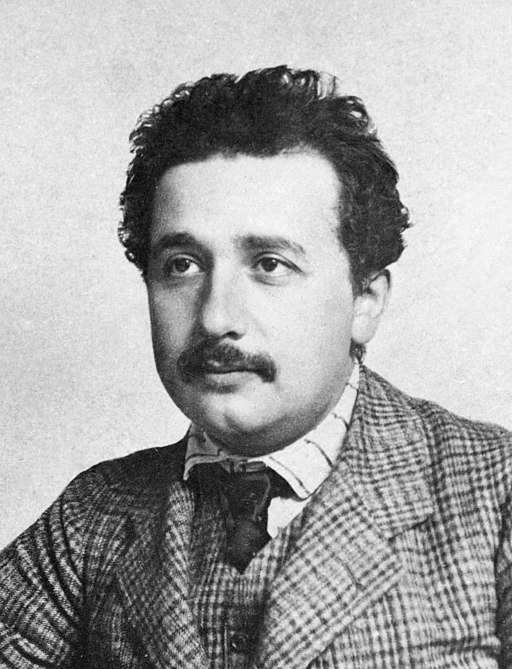Geniuses have long fascinated society, not only for their extraordinary achievements but also for their exceptional cognitive abilities. One intriguing aspect of their inner lives is their dreams, which can offer unique insights into their minds. This article explores what kind of dreams geniuses have, aiming to understand the patterns and content that distinguish their dreams from those of the general population.
Defining Genius and Dreams To Understand What Kind of Dreams Geniuses Have
What is Genius?
Genius, a term with historical and contemporary significance, defines individuals with extraordinary intellectual or creative power. Historically, geniuses were often seen as individuals with divine inspiration or natural talent. Contemporary definitions focus on measurable traits such as high IQ, exceptional creativity, and innovative thinking. These characteristics distinguish geniuses from the general population. Understanding these traits helps us explore what kind of dreams geniuses have.
Geniuses typically exhibit high IQs, reflecting their advanced cognitive abilities. Their exceptional creativity allows them to think outside the box and generate novel ideas. Innovative thinking enables them to solve complex problems and make groundbreaking discoveries. These traits shape not only their waking thoughts but also influence what kind of dreams geniuses have.
Understanding Dreams
Dreams are a universal human experience, yet they remain a complex phenomenon. The science of dreaming reveals that dreams occur during different stages of sleep. REM (Rapid Eye Movement) sleep is the stage most commonly associated with vivid dreaming. Non-REM sleep, while less intense, also contributes to the dreaming process.
Psychological theories provide various perspectives on dreams. Sigmund Freud viewed dreams as a window into the unconscious mind, filled with symbolic meaning. Carl Jung expanded on this by introducing the concept of archetypes and the collective unconscious. Contemporary perspectives integrate these theories with modern neuroscience, seeking to understand the cognitive and emotional functions of dreams
Cognitive Processes and Dream Content
Cognitive Abilities and Dream Complexity: Key Factors Influencing What Kind Of Dreams Geniuses Have
Research consistently shows a strong correlation between cognitive abilities and dream complexity. Individuals with higher cognitive abilities often experience dreams that are richer in detail, complexity, and vividness. For instance, studies conducted by Calvin Hall and Robert Van de Castle revealed that people with higher IQs tend to have more elaborate and intricate dreams compared to those with average cognitive abilities.
Geniuses, characterized by their advanced cognitive skills, often report dreams that are exceptionally vivid and detailed. Their dreams frequently involve intricate scenarios, rich narratives, and complex interactions. This heightened dream complexity is believed to stem from their enhanced cognitive functioning, which remains active even during sleep. Geniuses’ brains are adept at processing information, making connections, and creating elaborate mental representations, all of which contribute to the complexity of their dreams.
Problem-Solving in Dreams
One of the most fascinating aspects of dreaming is its role in problem-solving. Historical and contemporary examples illustrate how geniuses have used their dreams to solve problems or achieve breakthroughs. A famous instance is Friedrich August Kekulé’s discovery of the structure of the benzene molecule, which he visualized in a dream involving a snake forming a ring. Another notable example is Dmitri Mendeleev, who reportedly conceptualized the periodic table of elements in a dream.
Research indicates that the brain continues to work on unresolved problems during sleep, particularly during REM stages. This phenomenon, known as “sleep-assisted problem-solving,” suggests that the cognitive processes active during dreaming can lead to creative solutions and novel insights.
Geniuses often experience dreams that involve intense problem-solving and creative ideation. Their dreams may present solutions to complex scientific, artistic, or mathematical challenges that they grapple with in their waking lives. These problem-solving dreams are not random but are intricately connected to the geniuses’ areas of expertise and intellectual pursuits. Their advanced cognitive abilities enable them to utilize their dream states as a fertile ground for innovation and discovery.
Creativity and Symbolism in Dreams: Key Factors That Shapes What Kind of Dreams Geniuses Have?
Creative Dreamers
Research shows a strong link between creativity and dreaming. Creative individuals often have more vivid and imaginative dreams. Studies by Pagel and Kwiatkowski reveal that highly creative people experience dreams rich in detail and narrative.
Geniuses, known for their exceptional creativity, tend to have dreams filled with innovative ideas and unique scenarios. Their dreams often involve fantastical elements and novel concepts that reflect their creative minds. These dreams provide a playground for their imagination, allowing them to explore ideas unconstrained by reality.
Symbolism and Metaphor
Symbolism plays a significant role in dreams, particularly for geniuses. Dreams often use symbols and metaphors to represent deeper meanings and unresolved issues. Geniuses, with their heightened cognitive and creative abilities, frequently experience dreams rich in symbolism.
For example, Albert Einstein’s dreams often contained symbolic elements that reflected his deep thoughts and theories. Jung’s analysis of his own dreams and those of his patients revealed complex symbolic imagery.
Geniuses’ dreams are laden with symbolic and metaphorical content. These symbols can represent abstract concepts, personal challenges, or unresolved questions. The richness of symbolic content in their dreams is a testament to their deep and reflective thinking processes.
Emotional and Psychological Themes Influencing What kind of Dreams Geniuses Have
Common Emotional Themes
Emotional intensity often characterizes the dreams of geniuses. Their heightened sensitivity and intellectual engagement significantly shape the emotional content of their dreams. Research indicates that geniuses frequently experience dreams with strong emotional themes such as anxiety, ambition, and perfectionism.
Geniuses’ dreams often reflect their intense drive for achievement and fear of failure. These emotional themes are mirrored in their waking lives, where their relentless pursuit of excellence and innovation creates significant pressure. For example, many historical geniuses like Nikola Tesla and Vincent van Gogh reported dreams filled with anxiety and existential concerns. This intense emotional landscape suggests that their minds are continually processing their ambitions and the pressures associated with their genius.
Dreams serve as an emotional outlet, processing these high-stakes feelings and ambitions. Research by Cartwright and colleagues shows that REM sleep, where the most vivid dreams occur, plays a crucial role in emotional regulation. Geniuses, with their complex emotional and cognitive lives, likely rely on these vivid dreams to process their intense emotions. This continuous processing helps them manage their high levels of stress and maintain their mental well-being. Thus, understanding what kind of dreams geniuses have involves recognizing the profound emotional themes that pervade their dreamscapes.
Psychological Insights
Dreams provide a window into the psychological landscape of geniuses. They reveal the inner workings of their minds, offering clues about their mental and emotional states. Psychologists have long studied the dreams of highly intelligent individuals to gain insights into their unique psychological makeup.
For instance, biographical studies of historical geniuses often mention their vivid and emotionally charged dreams. Sigmund Freud’s analysis of Leonardo da Vinci’s dreams provided insights into his complex psychological world, including his unresolved childhood conflicts and creative genius. Similarly, Carl Jung’s work on his own dreams and those of his patients highlighted the deep psychological underpinnings that dreams can reveal.
Geniuses’ dreams frequently involve scenarios that explore their deepest fears, desires, and unresolved conflicts. For example, the mathematician Srinivasa Ramanujan reportedly dreamt of mathematical formulas that were later proven correct. These dreams, while providing intellectual breakthroughs, also reflected his deep-seated need to find meaning and order in the universe.
These psychological insights reveal how geniuses use their dreams to grapple with complex psychological issues. Their dreams often serve as a safe space where they can confront and work through their deepest concerns. For instance, research by Domhoff suggests that people who are highly introspective and self-reflective, traits common in geniuses, often have dreams that are rich in psychological insight and symbolic content.
If you wish to interpret and understand the meaning of your own dreams , you use the Self: Dream Analysis app


